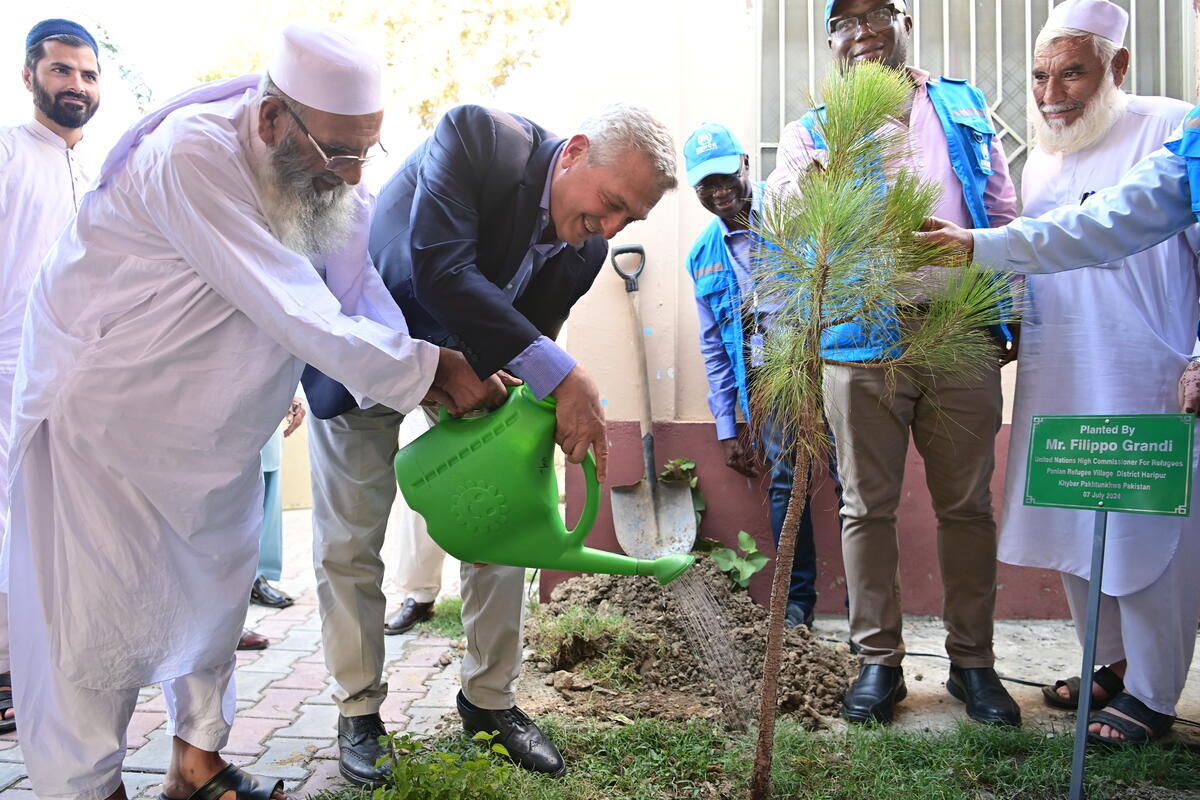Afghanistan: Winter break for voluntary returns from Pakistan
Afghanistan: Winter break for voluntary returns from Pakistan
More than 356,000 Afghans have returned home from Pakistan in 2007 as voluntary repatriation was suspended this week for the annual winter break.
The returns took place between 1 March and 31 October 2007, with each returnee receiving an enhanced repatriation package averaging $100 per person. Some 80 percent left from Pakistan's North West Frontier Province, 13 percent from Balochistan, 3 percent from Sindh and the rest from Punjab and Islamabad.
The main provinces of return in Afghanistan in 2007 were Nangarhar (57 percent of returnees), Laghman (6.5 percent), Kabul (6 percent), Kandahar (4.4 percent), Kunduz and Ghazni (3.7 percent each). This is a marked change from 2006, when Kabul was the top province of return, followed by Nangarhar, Kunduz, Logar and Paktya.
The voluntary repatriation of registered Afghans from Iran will continue throughout winter without any break. However, returns are not expected to rise much above their current low total of 6,500 during the remaining months of the year.
Inside Afghanistan, over 350 internally displaced persons (IDPs) have been assisted home in 2007. This brings to 500,000 the total number of IDPs who UNHCR has helped home since 2002. Many more have gone back on their own.
To help returnees settle back in their home areas, the UN refugee agency has provided 10,000 shelter kits this year to the neediest families. It has also allocated nearly $1 million for water and sanitation programmes, building and repairing 375 water points and 525 household latrines through the Afghan Ministry of Rural Rehabilitation and Development. Since 2002, over 9,000 water points have been completed, mainly in areas of high return.
With over 4 million returnees from Pakistan and Iran since UNHCR started assisting returns in 2002, the Government of Afghanistan and its partners are struggling to ensure their sustainable reintegration after decades of war. Some families which returned this year will need additional support to make it through this winter. Many others don't have land, shelter, jobs, schools and healthcare to sustain their lives back home.
Security is another major challenge as the situation deteriorates in provinces like Kandahar, Helmand, Uruzgan, Farah, west of Badghis and Wardak and generates fresh displacement.
Some 3 million registered Afghans remain in exile in the region today, including about 2 million in Pakistan and 910,000 in Iran. Many say they cannot return home due to a lack of security, shelter and livelihood opportunities. UNHCR has repeatedly stressed that any return to Afghanistan must be voluntary and gradual to make sure that repatriation is a durable solution. The agency has also called for the international community to do more to help returnees settle back in their homeland.








